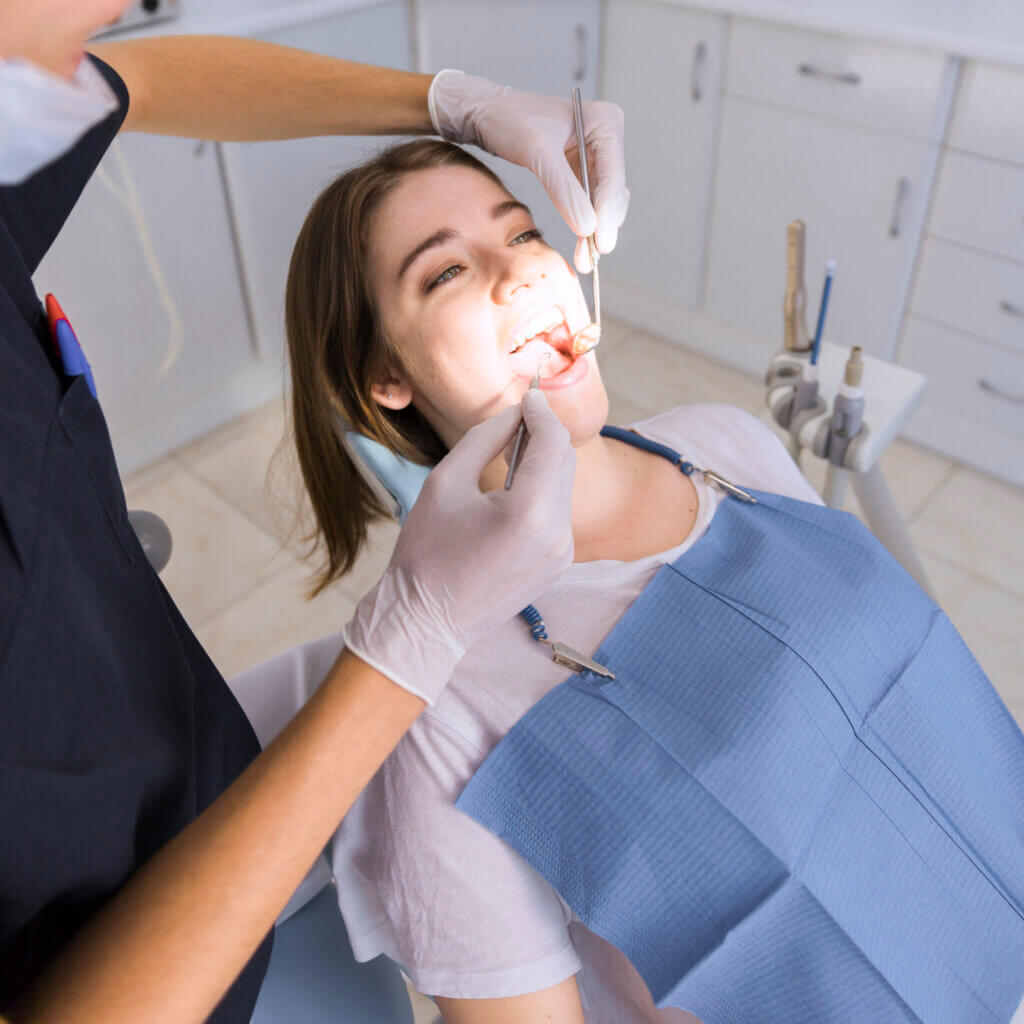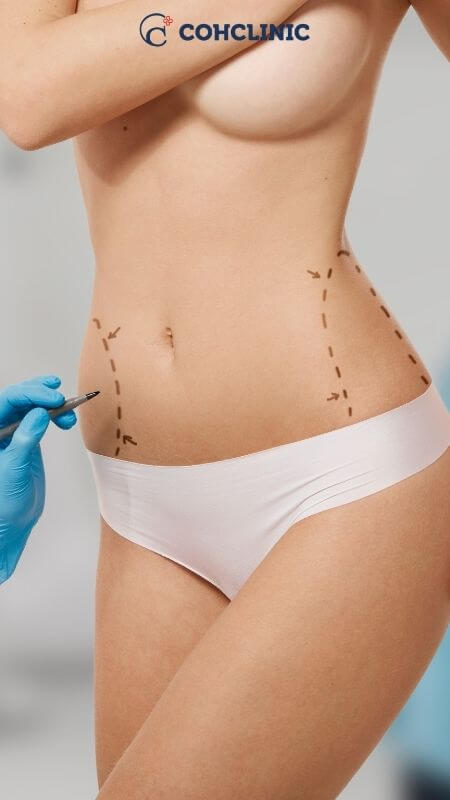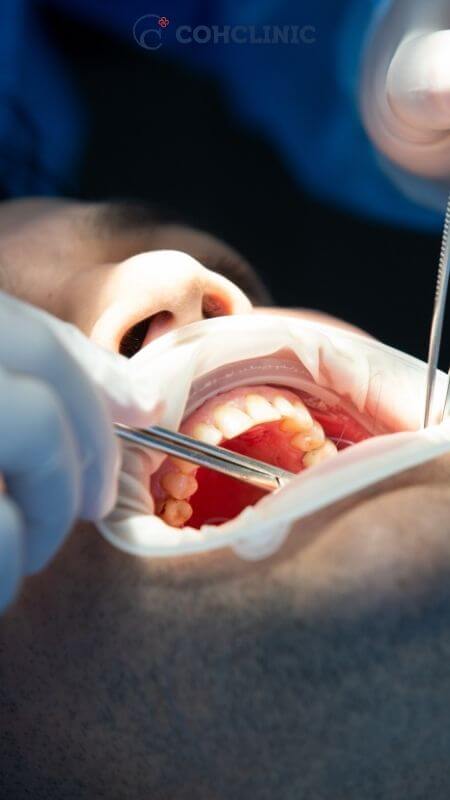Dental stones are among the most prevalent issues with oral and dental health. Even those who place a high priority on oral and dental hygiene are susceptible to developing tartar. The tiniest holes in the mouth and teeth are where bacteria from eaten food and beverages attach to teeth. The “plaque” or tartar stones cause discomfort during subsequent periods and start to have a detrimental impact on a person’s ability to eat. Future tooth and gum issues are significantly exacerbated by failing to do tartar cleaning. Specialist dentists advise that everyone should visit the dentist for a dental stone cleaning every six months.
What is teeth cleaning?
The consumption of acidic foods and the remnants left on the teeth can create an environment conducive to the buildup of bacterial plaques. Regular brushing is imperative to eliminate bacterial plaques, clear food residues in the oral cavity, and restore a neutral pH level in the mouth. Failure to adhere to consistent oral and dental care practices like brushing and flossing can result in the prolonged existence of bacterial plaques on the teeth. Persistent plaque accumulation may lead to the erosion of tooth enamel and subsequent tooth decay. Additionally, certain types of bacterial plaque can solidify, forming what is known as dental calculus. This hardened deposit, which cannot be effectively removed through regular brushing, often necessitates professional cleaning by dentists using specialized tools. Tartar cleaning, also referred to as calculus cleaning, effectively addresses the visible yellow or brownish tartar formed on the teeth due to the solidification of bacterial plaque.
What is tartar removal?
Tartars or stains on the teeth might develop if regular oral and dental care is not practiced. In this instance, tartar is removed by dentists using specialized tools. Dental stone cleaning is also known as dental plaque cleaning.
The color of the teeth can be altered by tooth stones in a variety of ways, from yellow to dark brown. Dental plaques not only stain teeth but also contribute to foul breath and tooth decay. As a result, it is crucial to remove tooth plaque.

The tartar should be cleaned by a dentist. Additionally, dentists clean the gum line, and exterior surfaces, in between teeth, plaque, and stones. Thus, dirt and stones are removed from the teeth. Regular tartar removal is necessary.
How is teeth cleaning performed?
Before initiating the process of dental scaling, a comprehensive oral examination is essential to identify any issues requiring tartar cleaning. Once the examination, the process can be carried out using various specialized tools. These tools are designed to eliminate plaque and tartar without causing any harm to the tooth enamel, ensuring a thorough cleaning of the tooth surface. Subsequently, the teeth exhibit a clean and polished appearance after the procedure. In cases where teeth discoloration is also a concern, additional applications for whitening and brightening may be recommended. The significance of teeth cleaning extends beyond aesthetic benefits, serving as a crucial preventive measure against gingivitis, gum recession, and potential tooth loss.
Despite regular oral care, the recurrence of dental calculus is common, attributed to certain minerals present in food and saliva. Typically, the scaling process commences with the use of ultrasonic devices that facilitate the cracking of dental calculus through vibration. Then, water is sprayed into the mouth to remove any residual tiny scales once the loosening deposits have been cleaned out. This meticulous process continues until all accumulated tartar, even in the hard-to-reach areas, is thoroughly eliminated. The final phase involves applying fluoride-containing tooth polish or paste and concluding the cleaning process.
After the dental stone cleaning
Post-scaling, patients are advised to refrain from eating or drinking for 2 hours and avoid consuming hot or cold substances within the first 24 hours. It is normal to experience mild discomfort in the gums and heightened sensitivity to temperature changes for a few days after scaling. An external ice pack can be gently applied to the gums to alleviate mild swelling. In cases of mild pain, the use of prescribed painkillers can provide relief, and gargling with salt water may expedite the healing process.
Maintaining diligent teeth cleaning practices after tartar cleaning is emphasized, even though it might pose a challenge immediately after the treatment. Regular brushing and flossing are strongly recommended by dental experts. Additionally, due to potential slight bleeding in the initial days, the use of antiseptic mouthwashes may be suggested. In instances where there has been severe calculus build-up, some slight tooth mobility might be experienced post-scaling. Regular check-ups every 6 months are imperative, with the possibility of repeating the dental scaling process if recommended by the dentist.
Why is dental stone cleaning important?
Plaque, sometimes known as “tartar,” is a bacterial buildup on the teeth’s surface and in the mouth that can lead to eventual tooth decay. Additionally, tooth loss might result from this. The presence of dental stones in this region can lead to tooth decay, tooth loss, and extremely serious gum problems.
How can dental stone formation be prevented?
Dental stones can grow in everyone, therefore it’s important to follow basic principles and develop good habits to avoid them. We at COH Clinic provide the following suggestions in this regard:
- Regular, thorough tooth brushing should be done twice a day. People who regularly clean their teeth have less of a tartar problem.
- One of the critical elements in plaque development is the choice of toothpaste. Utilizing “fluorinated toothpaste” also reduces the likelihood of such issues.
- The only way to address the tartar issue, which is more prevalent when teeth are not cleaned for an extended time, is to see a periodontologist. Curettage is a method that can solve this issue.
Will dental tartar cleaning harm the teeth?
The teeth are not harmed by tartar removal. Our oral and dental health are harmed by issues like bad breath brought on by tartar, tooth discoloration, gum disease, cavities, etc. In severe cases, it may even result in tooth loss. Cleaning the tartar will be the proper course of action for this reason.
How much are tartar cleaning prices?
If you don’t want dental issues, you may gain from specialized doctors’ dental calculus cleaning procedures. Prices for tartar cleansing vary depending on several factors. The quantity of tartar, dental stains, and tooth curvature all have an impact on cost. Additionally, costs vary based on the institution and the doctor’s experience.
How should the care after tartar cleaning be?
Some responsibilities lie on the individual after the dental calculus cleaning, which is advised to be done with regular checks and at intervals indicated by the doctors. Smoking is exceedingly hazardous, especially for the teeth being cleaned, and has a substantial impact on tartar growth. Additionally, drinking dark liquids like coffee, tea, or cola permanently discolors the teeth. Following the doctor’s recommendation, you should avoid these drinks and smoke at all costs, especially after gingival cleaning.
After a gingival cleaning, it is typical for the gums and teeth to become sensitive. Drinks that are felt in the first few days should be avoided because they are too hot or too cold. Following this technique, the most crucial guideline to remember is to never ignore oral health. Routine oral care techniques not only cause tartar but also undesirable effects like lasting bad breath and even significant tooth and gum issues. For this reason, routine dental checkups, oral hygiene practices, and professional advice should always be sought after.
Being a medical operation, interventions like tartar cleansing should be avoided around unconscious patients and mixed with unknown contents. For pricing details, treatment options, or to schedule an appointment for dental scaling cleaning, one of the treatments we provide, all you need to do is get in touch with us at +90 (536) 934 6524.
Frequently Asked Questions
Can I remove the hardened plaque myself?
Can I remove the hardened plaque myself?
Unfortunately, a toothbrush and floss are unlikely to be able to eliminate plaque once it has hardened into tartar. It is not a good idea to use other instruments to scrape tarter off of your teeth. You may damage your smile more than you can help since these gadgets need specialized expertise to operate them effectively.
Is it bad to scrape plaque off your teeth?
Is it bad to scrape plaque off your teeth?
The enamel of your teeth might be seriously harmed if you attempt to scrape plaque off of them at home. This also applies to removing tartar with your finger; never do it! A hard object, such as tweezers, should not be used to try to remove plaque from your teeth.
What happens if plaque is not removed?
What happens if plaque is not removed?
Plaque accumulates on your teeth and eats away at the enamel, leading to deterioration and cavities. Even gingivitis and severe periodontal (gum) disease can be brought on by plaque accumulation. The bacteria in plaque can cause poor breath and yellowing of the teeth if it hardens into tartar.
Will removing tartar loosen teeth?
Will removing tartar loosen teeth?
Your teeth feel loose in contrast when that accumulation is eliminated. However, it does not make them more inclined to separate. Despite your teeth feeling more floppy, clearing out plaque and tartar helps your gums and tooth roots reconnect, which will improve your dental health.
What is the recovery time for tartar removal?
What is the recovery time for tartar removal?
After a full cleaning, it typically takes the gums 5 to 7 days to recover. You can have some bleeding and gum swelling as your mouth heals. Since the roots of the teeth have just been exposed, they are probably sensitive.







